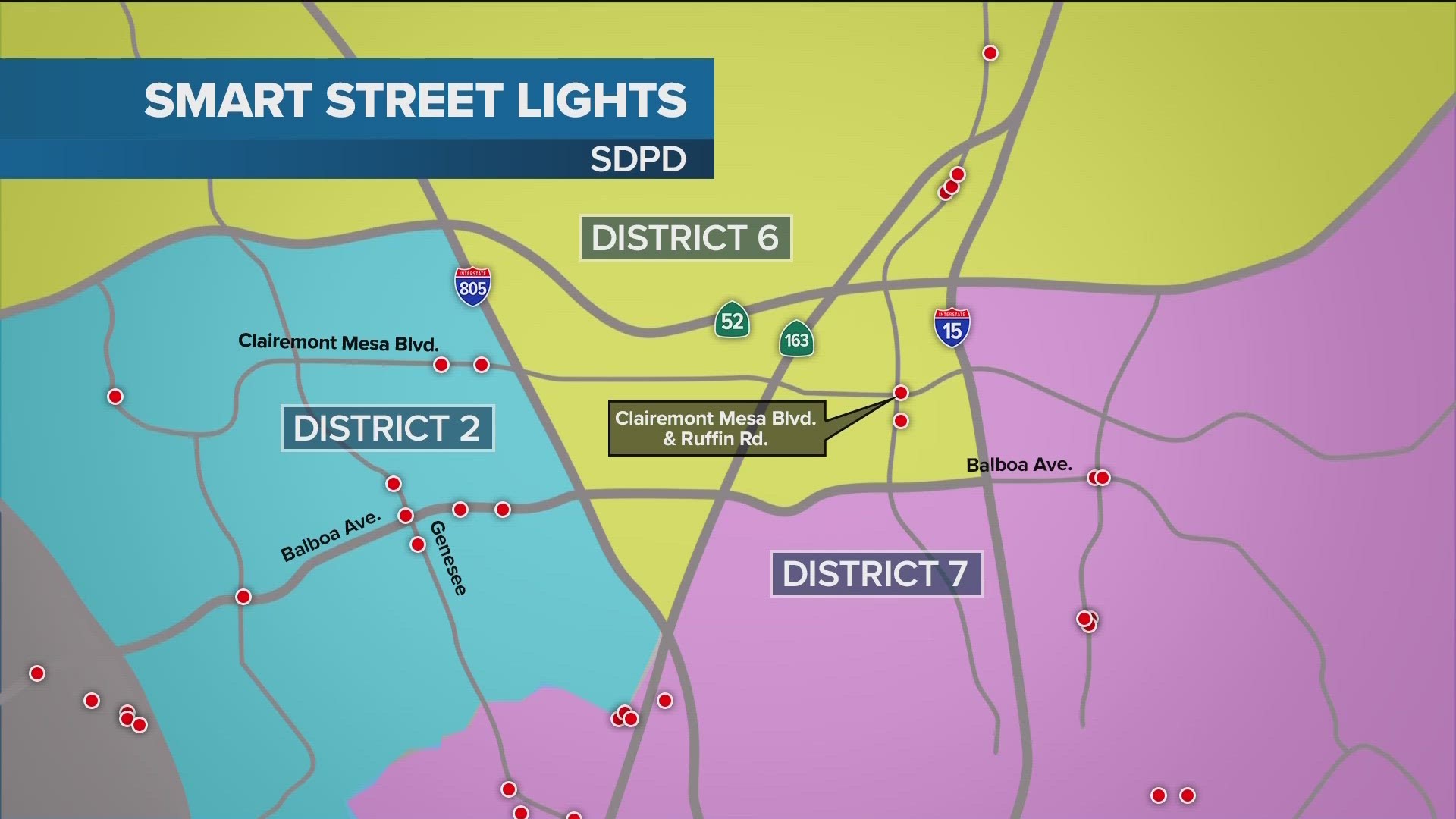SAN DIEGO — San Diego City Council agreed to deploy both automated license plate readers and "Smart Streetlights" throughout the City of San Diego after a contentious eight months of public discussion and meetings.
Ubicquia Inc.’s Smart Streetlights and Flock Safety’s Automated License Plate Recognition will have a 5-year agreement —and a $12 million contract — with the City of San Diego. The companies and San Diego Police Department officials say the cameras will hold wrongdoers accountable. Critics of the tech say the cameras infringe on citizens’ privacy.
San Diego Police Chief David Nisleit says the crime-solving cameras will make San Diego safer.
"It allows us to respond to violent crimes in a more effective manner and allows us to hold those committing crimes on our community accountable," Nisleit said. "Anytime law enforcement can leverage technology such as smart streetlights and automated license plate readers, it only makes us more efficient at our jobs and provides for a safer community."
The 500 cameras will be installed across San Diego in busy intersections like Clairemont Mesa Boulevard and Ruffin Road and other places including the beach areas and Downtown San Diego. Readers can find a map of the cameras proposed deployment across the City of San Diego here.
But not everyone is a fan of the plan.
The idea was met with controversy after several people and groups such as Transparent and Responsible Use of Surveillance Technology San Diego Coalition, or TRUST SD spoke out vehemently against the technology citing privacy and safety concerns. Members of the coalition also coordinated with City Council and the police to draft surveillance ordinances on how best to manage technology like the smart streetlights.
Jason, a man who lives in San Diego and drives through the Clairemont area, was disappointed to hear of the technology’s installation.
"I think that's a little much," he said. "That sounds like an invasion of privacy to me."
Jason also said he’s concerned what could happen with the data collected from the cameras and license plate readers, leaving law-abiding San Diegans at risk.
City leaders from SDPD and City Hall say, they will keep your data safe while the technology helps keep our streets safer.
"This is not a proactive tool, this is a reactive tool, these are not being monitored 7-24," he said. "This is a reactive tool after a violent crime exists."
Mayor Gloria agreed in a recent interview with CBS 8.
"We keep the data for a limited time only and if it's not associated with a crime, it's expunged and not reused. In the case of a crime, we capture that information and only that information."
Mayor Gloria also said the city worked with communities across San Diego to establish rules for how cameras and data will be handled to protect privacy.
"I think all of us want criminals brought into custody as quickly as possible," Gloria said. "But none of us want those of us who have committed no crime to be caught up in this technology. We've established a use policy, we've gone out to every city council district, we've met with the Citizen's Advisory Board as well as the city council committee."
What to read further on San Diego Police's policies regarding the technology's access, data storage and retention?
The project is expected to cost nearly $12 million over the course of five years. Approximately $3.5 million will be paid out in the first year, which includes a one-time $1.5 million installation and maintenance cost and $2 million for hardware, software and connectivity. The program will cost approximately $2 million annually after the first year.
While the idea is popular with city officials, Jason says it's simply not right for San Diego.
"That's tax payer money?” Jason questioned. “No! I don't want my tax dollars to go towards that. Hell no."
Now that the Smart Streetlights and Automated License Plate Recognition technology have been officially approved, San Diego Police officials said they will be installed as soon as possible with hopes of having the technology operational by January 2024.
WATCH RELATED: City Council to consider $12 million Smart Streetlights program

